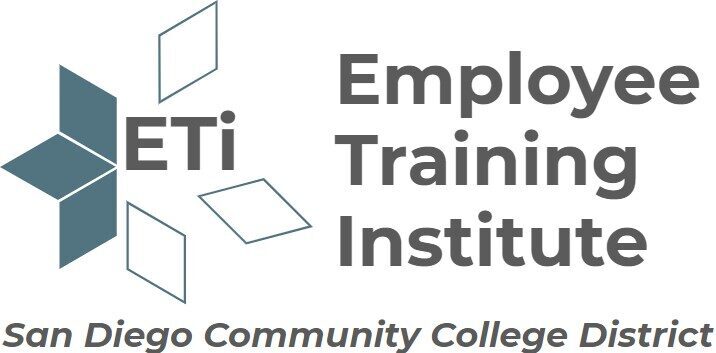Become a Residential Electrician
Electrical work has some of the best opportunities for career stability, especially for residential technicians. If you want to start a career in electrical work, this 100% online course will prepare you for an entry-level residential electrician apprenticeship.
Registration and Enrollment
This course is 100% online. Start anytime!
Course Details
- Branch and feeder circuits with various types of cable and conduit
- Service of circuit breakers, lighting fixtures, receptacles, switches, paddle fans, and electric motors
- Identifying and fixing electrical problems on “service calls”
- Installation, maintenance, and troubleshooting photovoltaic renewable energy systems
PREPARING AND PLANNING A RESIDENTIAL WIRING JOB
Residential workplace safety, hardware and materials used in residential wiring; determining branch circuit, feeder circuit and service entrance requirements
RESIDENTIAL SERVICE ENTRANCES AND EQUIPMENT
Introduction to residential service entrances; service entrance equipment and installation
RESIDENTIAL ELECTRICAL SYSTEM ROUGH-IN
General Nec® requirements for rough-in wiring; installing electrical boxes, cables, switching and branch-circuits
RESIDENTIAL ELECTRICAL SYSTEM TRIM-OUT
Lighting fixture installation, device installation and service panel trim-out
MAINTAINING AND TROUBLESHOOTING A RESIDENTIAL ELECTRICAL WIRING SYSTEM
Checking out and troubleshooting electrical wiring systems
GREEN HOUSE WIRING TECHNIQUES
Green wiring practices and photovoltaic (PV) system installation
MANAGING CUSTOMER SERVICE
Winning customer service, customer expectations and moving forward with the four P’s
There are no prerequisites to take this course.
Hardware Requirements:
- This course can be taken on either a PC or Mac.
Software Requirements:
- PC: Windows 10 or later.
- Mac: macOS 10.6 or later.
- Browser: The latest version of Google Chrome or Mozilla Firefox are preferred. Microsoft Edge and Safari are also compatible.
- Microsoft Word or equivalent (not included in enrollment).
- Adobe Acrobat Reader.
- Software must be installed and fully operational before the course begins.
Other:
- Email capabilities and access to a personal email account.
Simulation Requirements:
- Desktop Browser: A 64-bit web browser
- Recommend: Mozilla Firefox 52+, Google Chrome 57+
- Supported: MS Edge 15+, Apple Safari 10.1+
Instructional Material Requirements:
The instructional materials required for this course are included in enrollment. The following textbooks will be shipped to you approximately 7-10 business days after enrollment:
- Residential Construction Academy: House Wiring
- National Electrical Code 2017
Please Note: You will receive a digital book if the physical book is on backorder.
Greg Fletcher
Greg Fletcher has over 40 years of experience in the electrical field as both a practicing electrician and as an electrical instructor. He has been a licensed electrician since 1976 and currently holds a Master Electrician’s License in the State of Maine. In 1988, he was appointed as the Department Chairman of the Trades and Technology Department and Program Director/Instructor of the Electrical Technology program at Kennebec Valley Community College in Fairfield, Maine. He is the author of several textbooks including Residential Construction Academy: House Wiring, Guide to Using the National Electrical Code, and The Electrician’s Guide to Photovoltaic System Installation. He has an associate’s in Electrical Construction and Maintenance, a Bachelor of Science in Applied Technical Education, and a Master of Science in Industrial Education.
$2,495 $2,595 4% off
This course is 100% online.
| Course Hours | Duration | Start Dates |
|---|---|---|
| 144 Course Hrs | 12 Months | Start anytime. |
Job Outlook
According to the US Bureau of Labor Statistics (BLS), electricians earn a median annual salary of $55,000, which is almost $10,000 more than the average of all construction and trade jobs.
The BLS estimates that jobs for electricians will grow by 10% through 2028, which is over 74,000 new jobs.
FAQs
WHAT IS THE DIFFERENCE BETWEEN A RESIDENTIAL ELECTRICIAN AND AN ELECTRICAL TECHNICIAN?
While residential electricians and electrical technicians both deal with electrical systems, the nature of their work is different. Residential electricians install, maintain, troubleshoot and repair the wiring in buildings, whether that be residential homes, offices or commercial properties. On the other hand, electrical technicians work on electrical systems within machinery, specialty equipment and other commonly used devices.
WHY ARE RESIDENTIAL ELECTRICIANS IN DEMAND?
The biggest reasons for job growth in the electrical field is construction. In the U.S, the population will grow 2 million people per year until 2030, which will mean more construction jobs.
WHERE ARE RESIDENTIAL ELECTRICIANS NEEDED THE MOST?
When it comes to construction, electrical workers are the first in to install electrical systems. Infrastructure development also comes with new residential and commercial projects. Older buildings need to be retrofit with technology and alternative energy sources.
DO RESIDENTIAL ELECTRICIANS NEED LICENSING?
Licensing in the electrical field differs state to state. Generally speaking, the licensing process for electricians starts at apprenticeship (2-4 years), then journeyman (5-6 years) and finally master electrician. This course will prepare you for an apprentice-level job.
I have to admit, I was not at all enthralled with the thought of taking an online class. I have surprised myself (and my supervisor) on how much I am enjoying it. Again, thank you!
C.M., Collin College

